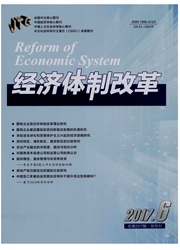

 中文摘要:
中文摘要:
城市公用事业公私合作是新公共管理理论和新规制理论在公共服务市场化改革中的具体应用,在西方发达国家总体上取得了较好的效果。但我国公交公私合作经历改革热潮后,多数却以失败谢幕,出现重归国有的逆民营化现象,形成国有低效与民营乱象的选择两难。公私合作是解决两难困境的“良药”,还是矫枉过正的“化疗法”?通过分析发现,公私合作有效性的发挥需要一定的制度条件,法律规范、市场机制以及公共管理能力都是影响公私合作效益和成败的关键。在我国制度能力较低时,盲目实行公私合作难以取得预期效果,逆民营化的出现也在情理之中。由此提出破解逆民营化的对策建议:完善公私合作法律体系、健全市场机制、转变政府职能等。
 英文摘要:
英文摘要:
Urban public utility is the concrete application of the new public management theory and the new regulation theory in the public service market reform, and has achieved good results in the western developed countries in general. But after a upsurge of reform on public transit in our country, the public-private partnership, majority has failed to respond to a curtain call, return to state the reverse privatization phenomenon, formation of inefficient state-owned and private chaos dilemma. The public- private partnership is to solve the dilemma of "good medicine" , or "overkill therapy"? Through the analysis, it is found that the effectiveness of public and private cooperation needs a certain system conditions, legal norms, market mechanisms and public management capabilities are the key to the public and private benefits and success or failure. In our country the system ability is low, the blind implementation of public private cooperation is difficult to achieve the desired results, reverse privatization is also reasonable. Therefore, this paper puts forward countermeasures and suggestions on solving the reverse privatization: perfecting the legal system of public private partnership, perfecting the market mechanism, changing the government function.
 同期刊论文项目
同期刊论文项目
 同项目期刊论文
同项目期刊论文
 期刊信息
期刊信息
